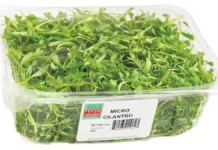
Severe allergic reactions of all kinds happen quickly and can be life-threatening and with an estimated one in ten adults with a food allergy in the United States1, food allergy related negligence can be a dangerous and costly mistake for hospitality businesses. Given the state of the insurance market and strict insurance underwriting, any preventable losses such as this must proactively be eliminated to position your restaurant as best in class.
Many laws regulating allergy-related requirements in restaurants are state-specific2, and thus how food allergen issues are treated will vary accordingly. Five states, Massachusetts, Maryland, Michigan, Rhode Island, and Virginia, have laws designed to make it safer for individuals with food allergies to dine in restaurants. Massachusetts was the first state in the nation to pass a restaurant awareness law. New York requires posters with information on food allergy to be placed in all food service establishments, which have to be available in multiple languages. Restaurants in Illinois are now required by law to have at least one manager on duty who has had training in nationally recognized standards for food allergen safety and allergen awareness available at all times that the food service establishment is in operation. A detailed overview of the additional state-specific laws can be found on the FARE website provided in the citations below.
Regardless of state legislation, it is crucial that restaurants and other food service providers take all possible measures to mitigate this increasing risk.
Training Your Staff
CDC’s Environmental Health Specialists Network (EHS-Net) conducted a study to see what restaurant staff and management knew about allergies and how they handled them3. While overall findings were positive, the study also found significant gaps:
- More than 1 in 10 managers and staff incorrectly believed that someone with a food allergy could safely eat a small amount of that allergen.
- More than half the staff interviewed did not have specific training on food allergies, and training often didn’t cover important information like what to do if a customer had an allergic reaction.
- Most restaurants did not have separate areas and equipment for preparing and cooking allergen-free food.
- Some food workers thought their restaurant might not know what to do if a customer has a food allergy emergency.
Training staff on food allergies, including identifying major food allergens, how to prevent cross-contamination of allergens, and what to do if a customer has an allergic reaction is vital for any establishment serving food. There are many steps that should be taken by the front-and back-of-the-house staff to protect customers with food allergies, such as the following:
- Ensure that tables, chairs, salt and pepper shakers, laminated menus and other table items are clean and sanitized.
- Use a spray bottle solution to clean surfaces when sanitizing. Buckets are not recommended as food proteins could be floating in the water, coming into contact with eating surfaces.
- Educate servers so they are knowledgeable about the ingredients used to prepare each menu item. If a server is new or uninformed, a manager or more experienced wait staff member should handle the table.
- Communicate to managers, chefs, and colleagues to heighten awareness around customers with food allergies.
- Select a designated staff member to ensure that all food safety precautions have been met.
Food Preparation Practices
Raise awareness with chefs and cooks on the precautions needed for food allergies, as well as how to properly cook and prepare them. You can reduce cross contact during the food preparation process through the following suggestions:
- Change aprons, wash hands and sanitize all food preparation surfaces.
- Insert a piece of foil between food and a grill surface to act as a barrier.
- Use separate fryers with clean grease. Example: If the guest has a fish allergy, do not cook French fries in the same oil used to fry fish.
- Use separate utensils, plates, glassware etc. that has been washed, sanitized and stored separately in a locked cabinet.
If mistakes are made during dish preparation, start over! It’s not worth putting someone’s life at risk.
Incident Response Measures
Even with the best precautions and processes in place, incidents do occur. If a customer is in distress, do not leave the guest alone. Direct a co-worker to stand outside and meet paramedics at the door. Upon arrival, tell emergency services that the customer is experiencing an allergic reaction and advise them as to whether the customer has injected themselves with an EpiPen to mitigate the symptoms.
Insurance Protection
A general commercial liability insurance policy will provide a layer of coverage, which can be enhanced by the limits of an excess liability/umbrella policy. In addition, other types of specialized insurance policies such as product recall, trade name restoration and accidental contamination/malicious product tampering coverage, are increasingly available to help fill any coverage gaps or exclusions. These would come into play for incidences of widespread illness and contamination, rather than individual allergies or food poisoning scenarios.
When it comes to food related liability exposures, proactive risk management is a way of thinking that must permeate the whole organization – from management to front-line employees. Making it a part of all decision-making processes is important to creating a culture that values risk management. Speak to your insurance advisor and explore all your options when it comes to managing risk.
1. https://www.fa.org/resources/facts-and-statistics
2. https://www.fa.org/resources/all-and-restaurants
3. https://www.cdc.gov/nceh/ehs/ehsnet/plain_language/reduce-all-reactions.html























